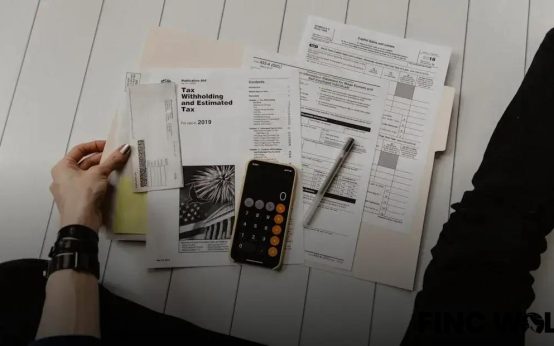Are you overwhelmed by debt and considering ways to manage it more efficiently? Debt consolidation might be a solution worth exploring. In this article, we’ll delve into the various aspects of consolidating your debt, including its benefits, potential drawbacks, and alternative methods.
Understanding Debt Consolidation
Debt consolidation is a financial strategy aimed at streamlining multiple debt payments into a single, manageable monthly obligation. This approach typically involves merging high-interest debts, such as credit cards, personal loans, or other liabilities, into one loan with a potentially lower interest rate. By consolidating debt, individuals can often reduce their financial stress and simplify their repayment process.
Understanding how debt consolidation works is crucial. The process usually starts with calculating the total amount owed across various accounts. Once this is identified, the individual can explore options for obtaining a consolidation loan. Many opt for personal loans, balance transfer credit cards, or home equity loans to consolidate debt.
Key Factors to Consider
When considering debt consolidation, it’s important to analyze interest rates, loan terms, and potential fees associated with new loans. Borrowers must ensure that the consolidated payment plan aligns with their monthly budget and long-term financial goals. Comparing lenders can also provide better loan terms and lower interest rates.
Another important aspect is understanding the impact on your credit score. While debt consolidation can initially affect the credit score, it may improve over time as you simplify your debt payments and maintain timely payments on the new loan.
The Role of Debt Management Working with a credit counselor can offer guidance throughout the process. They can provide insights on creating a feasible budget and managing finances efficiently. Additionally, they might help negotiate better terms with creditors.
Overall, grasping the intricacies of debt consolidation is essential for making informed decisions. Through effective planning and consideration of all available options, those facing debt challenges can find relief and steer their finances towards a more stable future.
Pros and Cons of Debt Consolidation

Pros of Debt Consolidation
- Lower Interest Rates: Consolidating your debts can lead to lower interest rates compared to those high-rate credit cards.
- Single Monthly Payment: Instead of handling multiple payments, you’ll deal with just one, making financial management easier.
- Boost Your Credit Score: By consolidating and paying off your existing debts, you can improve your credit score over time.
- Fixed Repayment Schedule: Know exactly when your debt will be paid off with a clear plan in place.
Cons of Debt Consolidation
- Poor Spending Habits: If you don’t change your spending habits, you might end up accumulating more debt.
- Fees and Costs: Some consolidation loans come with fees, which can add to your overall debt.
- Not for Everyone: Consolidation might not suit those with smaller debts or those already in bankruptcy.
- Extended Payment Period: You might end up paying for a more extended period, which can lead to paying more interest over time.
When considering debt consolidation, weigh these pros and cons carefully to determine if it’s the right choice for you.
How to Consolidate Your Debt Effectively
Debt consolidation can be an effective strategy if you approach it wisely. Identify your total debt – first, gather all your debt information, such as credit cards, personal loans, and any other outstanding balances. Understanding the full picture is crucial.
Next, choose the right consolidation option. You could opt for a personal loan to pay off your debts, or use a balance transfer card with 0% interest for a limited time. Analyze interest rates, fees, and repayment terms to find the best fit for your situation.
Develop a repayment plan after consolidating. This should include setting a realistic budget and sticking to it. List your income and essential expenses to determine how much you can allocate towards your new, consolidated debt each month.
Make sure to adjust your spending habits to prevent accumulating more debt. It may be helpful to cut back on unnecessary expenses and focus on building an emergency fund.
Lastly, monitor your credit score over time. Debt consolidation can initially lower your credit score due to hard inquiries and changes in credit utilization. However, consistent, on-time payments and reduced credit utilization will likely improve your score in the long run.
By following these steps, you’ll be better equipped to manage your debt through consolidation.
Alternatives to Debt Consolidation

Dealing with debt can feel overwhelming, and while debt consolidation is a common approach, it may not be the best fit for everyone. Here are some alternatives to consider:
1. Debt Snowball Method
Focus on paying off your smallest debts first while making minimum payments on larger debts. This method helps build momentum and can boost motivation as smaller debts are cleared off.
2. Debt Avalanche Method
This strategy targets debts with the highest interest rates first. By tackling the more costly debts, you can save money on interest over time and reduce the total amount paid.
3. Negotiate with Creditors
Contact your creditors to negotiate lower interest rates or payment plans. Sometimes, creditors are willing to work with you to facilitate manageable payment arrangements.
4. Credit Counseling
Enlist the help of a credit counseling agency to gain insights into your financial situation. A counselor can offer tailored advice and might assist in setting up a practical debt management plan.
5. Bankruptcy
Although often seen as a last resort, bankruptcy can provide a fresh start by eliminating or restructuring debts. It’s crucial to consult a professional to understand the implications of filing for bankruptcy.
6. Personal Loans
A personal loan with a lower interest rate might be an alternative to debt consolidation loans. This option could simplify your payments and help reduce the amount of interest you’re paying.
Exploring these alternatives can offer a variety of ways to tackle debt without relying solely on consolidation. Consider each carefully to determine which aligns best with your financial goals and capabilities.
Common Misconceptions About Debt Consolidation
Many individuals have incorrect assumptions about debt consolidation, which can lead to poor financial decisions. One major misconception is that consolidating debt magically reduces the overall amount owed. In reality, consolidation simply combines multiple debts into one loan, often with a different interest rate or repayment term.
Another myth is that debt consolidation will fix all credit problems. While it can help simplify payments, it doesn’t address the root causes of debt or guarantee improved credit scores. Managing debt effectively requires ongoing financial discipline and responsible spending habits.
Some people believe that debt consolidation is only for those with excellent credit scores. It’s true that good credit can help secure better terms, but there are options available for individuals with various credit backgrounds. However, it’s important to shop around and compare offers to ensure favorable conditions.
A significant misunderstanding is thinking that all consolidation options are the same. In fact, there are differences between personal loans, balance transfers, and debt management plans. Each option has its unique benefits and drawbacks, making it crucial to research thoroughly before committing.
Many fear that consolidating debt is a signal of financial failure. On the contrary, seeking a debt consolidation solution can be a proactive step toward financial stability. It provides a chance to restructure debts in a manageable way, offering relief from juggling multiple payments.
Lastly, a common mistake is not considering all associated fees. Some lenders might charge origination fees, annual fees, or prepayment penalties. It’s essential to understand the complete cost structure to avoid any surprises later.
Steps to Take Before Consolidating Debt

Evaluate Your Financial Situation: Before taking any steps, it’s important to understand your current financial standing. Gather all debt statements, including credit card balances and loan amounts. Assess your monthly income and expenses to determine how much you can realistically afford to pay each month.
Check Your Credit Report: Your credit score plays a significant role in the debt consolidation process. Obtain a copy of your credit report to review any inaccuracies. A good credit score might result in better loan options.
Research Consolidation Options: Investigate the types of debt consolidation loans available. Consider the differences between personal loans, balance transfer credit cards, and home equity loans. Each option comes with its own terms, fees, and interest rates.
Create a Budget: Establish a realistic budget that accounts for your consolidated debt payments. This will aid in managing your finances more efficiently and preventing future debt accumulation.
Consult a Financial Advisor: It’s wise to consult a financial advisor for personalized guidance. They can help evaluate whether debt consolidation is the right strategy for your financial goals.
Compare Lenders: Once you’ve decided to consolidate, compare offers from various lenders. Pay attention to interest rates, repayment terms, and any additional fees associated with the loans.
Avoid New Debt: While preparing for debt consolidation, avoid taking on new debt. Focus on paying down existing obligations to improve your financial health.





